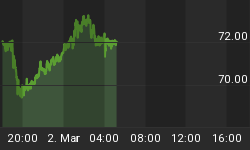CEO Elon Musk and the Tesla team have succeeded in making their company the most widely used electric vehicle brand name, but this has not yet led to global EV sales dominance.
Competitor BMW just issued a report conducted by global consulting firm IHS Markit and based on new vehicle registrations from Feb. 2018 to Feb. 2019. BMW has 16 percent of plug-in vehicle market share in Europe, while Tesla tied for fifth place with Volvo, according to the study.
In its home market of Germany, BMW has 20 percent share with Tesla coming in at 3 percent. Germany is the largest car sales market in Europe, though it doesn’t top EV sales in the region.
The leading EV market in Europe has been Norway, which is showing another telling trend. BMW has nearly 77 percent of that market, while Tesla recently has seen a sales decline in the country. Norway has become the emblem for banning petroleum-fueled cars in the near future, with EVs making up nearly half of total new vehicle sales in the past year according to the IHS Markit report.
Other automakers are beating Tesla in European EV sales, which may have something to do with Tesla's weak retail presence is key markets. With the Tesla Model 3 entering the European market, the company has been expecting to see better results. Tesla has not opened up its popular retail stores in the boot of Italy, in Spain outside Madrid and Barcelona, in most of Germany outside the biggest cities, and in Eastern European countries. France has only two Tesla stores in place.
Tesla is tied with China's BYD for first place globally, with Beijing Auto coming in second and BMW third. China will be the major market for determining market leadership in years ahead, where Tesla says it will begin production at its Shanghai plant in May. Tesla will be one of several foreign companies allowed to enter free-trade zones in China. That alters the decades-old tradition of requiring manufacturers to forge joint venture companies with Chinese partners. Related: Why No One Is Interested In Building EV Infrastructure
BMW is also in a distinct position in China. Last year, the government gave BMW the green light to go outside its China joint venture and increase its ownership to 75 percent in Brilliance China Automotive Holdings from 50 percent. The deal will be closing in 2022 when the government lifts rules capping foreign ownership for all auto ventures. China is the leading global market for auto sales, and BMW doesn’t want to miss out on EV and luxury market sales gains.
BMW, Tesla, and other vehicle makers are closely following the trade war between the U.S. and China. Moving more of its production to China could help BMW boost its profits. For now, the steep import tariffs are hurting foreign companies shipping to China.
The study reports that BMW had 6.6 percent of global EV sales over the past year. That compares to 2.7 percent of total new vehicle sales made up by EVs in the global market.
BMW is also seeing gains in the U.S., where nearly 10 percent of its sales are EVs in a market where EVs only make up about 3.5 percent of total vehicle sales.
Tesla still holds the lion’s share of the U.S. market. Total EV market sales came in at 361,307 for last year — up 81 percent over 2017. Of that total, 139,782 units were Model 3s in 2018. Including the Model S and the Model X, Tesla had more than 50 percent of total plug-in vehicle sales last year in the U.S.
The other companies leading global EV sales share include China’s Roewe, Nissan, three other Chinese makers (Chery, JAC, and Jianling EV), Volkswagen, and Hyundai. Related: Can The British Pound Overcome Brexit?
Nissan is going through turbulence since the Japan arrest of its CEO Carlos Ghosn and split from its Renault partnership, which is expected to affect sales. Nissan fired Ghosn, credited with salvaging the company years ago and championing its popular Nissan Leaf, for charges of financial misdeeds.
German automakers are expected to pick up some of that slack. VW, BMW, and Daimler have launched ambitious EV manufacturing goals that are starting to make their way to dealerships. Being Tesla-competitive has been at the heart of it, along with complying with increasingly stringent government regulations.
Automakers will be investing 60 billion euros ($68 billion) over the next three years in EVs, the VDA, a German trade group, said in a statement earlier this month ahead of the 2019 Geneva Motor Show. The number of EV models will triple to about 100 different vehicles during that time, according to VDA President Bernhard Mattes. Many of them will have autonomous vehicle features.
Stricter European Union emissions standards will take effect in 2030, which had led German makers to make ambitious production commitments through the next decade.
The VDA’s Mattes also called for an expanded EV charging infrastructure and more purchase incentives for electric cars. Installing more public chargers (especially fast chargers) and bringing down the perceived purchase price and ownership cost have been the leading issues for EV adoption in all the global markets.
By Jon LeSage for Oilprice.com
















